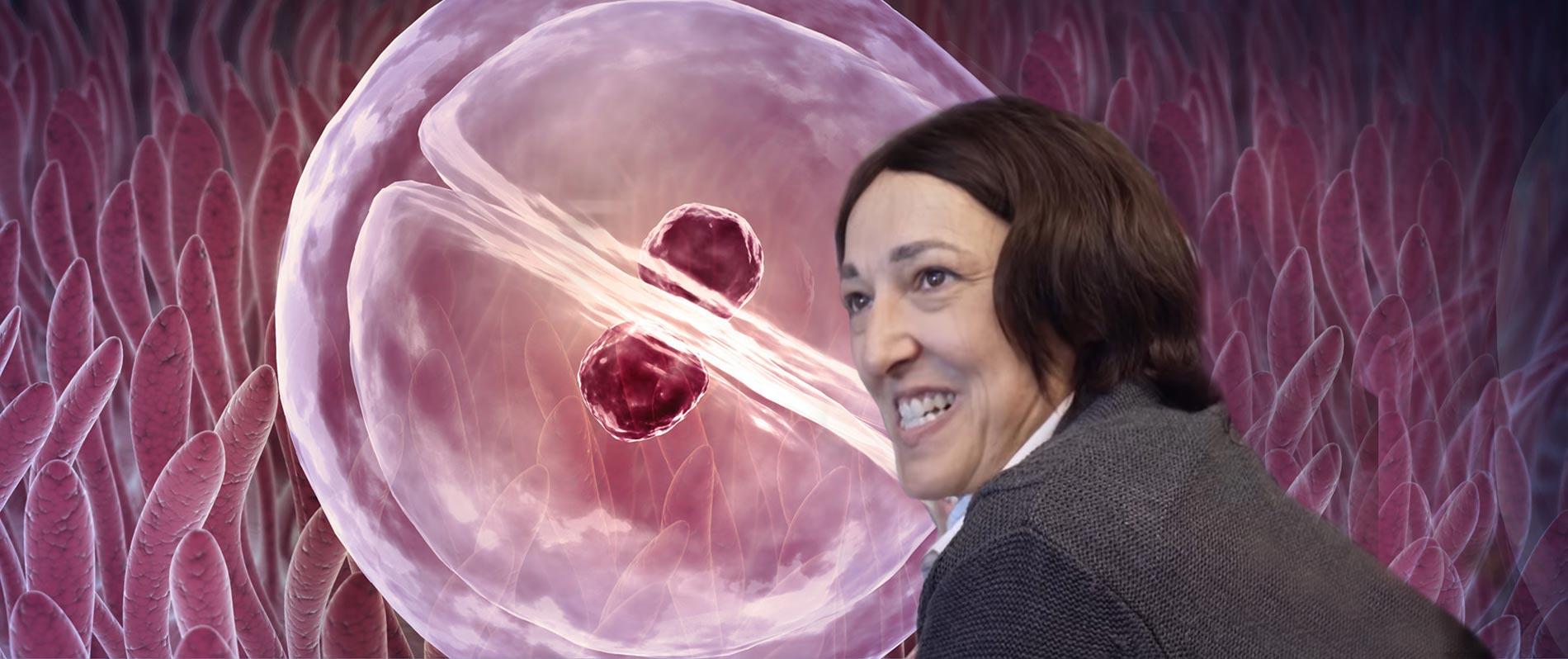Two years have passed since top biologist Angelika Amon passed away on 29 October 2020. Professor Amon was an Austrian scientist who taught at MIT in Boston, Massachusetts. She dedicated her life to examining how cells grow, divide, and age. She made a lasting impact in biology by showing the world how the division of cells and the chromosome count affect genetic disorders such as Down Syndrome. Her untimely death cut short her promising career, which many experts predict would have earned her a Nobel Prize. In 2019 she was awarded the prestigious Breakthrough Prize in Life Sciences.
Daniella Vanova, 10 November 2022
As an Austrian-American molecular and cell biologist, Angelika Amon’s deep curiosity regarding how chromosomes are regulated, duplicated, and partitioned facilitated further extraordinary research. She was also known for her bright personality, perseverance, and enthusiasm for her research
Born in 1967, Amon grew up in Vienna, Austria, in a family of six. Her passion for biology began at a very young age. Although she originally wanted to become a zoologist, her career aspirations quickly changed after having watched a 1950s black-and-white film on chromosome segregation. Amon was blown away by sister chromatids splitting. Wanting to focus on this, Amon decided to study the inner workings of the cell and focus on genetics and the division of cells at the University of Vienna.
After having received her Bachelor’s of Science in biology, Amon continued her research at the University of Vienna, where she was awarded a Ph.D. in 1993. Since the beginning of her studies, she made important findings and contributions to the field of cell dynamics. Amon’s initial career passion – fruit fly genetics – was relatively short-lived. Her subsequent research, conducted at the laboratory of Oxford University Professor Kim Nasmyth focused on yeast genetics. This groundbreaking research paved the way for major cell discoveries, such as how one stage of the cell cycle prepares for the next.
Amon’s research revealed that cyclins, proteins that accumulate within cells as they enter mitosis, must be broken down before cells pass from mitosis to the G1 period of cell growth. Her switch from fruit-fly genetics to yeast genetics was perhaps the best change of research in history. Through her yeast research, Amon contributed to the understanding of how cells divide, which eventually led her to discover a cellular aneuploidy program.
Aneuploidy is the presence of an abnormal number of chromosomes in a cell. As humans have 23 pairs of chromosomes, a common chromosome count among individuals who have aneuploidy can amount to 45-47. Amon’s deep research into the chromosome count helped uncover the biological consequences of having too many chromosomes. Her research determined that a larger count of chromosomes impacted the composition of the cell. This affected the stress within the cell in important processes such as protein folding and metabolism which, with their uncontrollable growth, have an impact on cancer development and the continuous creation of cancer cells. Amon demonstrated that aneuploidy disrupts the usual ability of cellars to repair, which permits genetic mutations to occur more quickly and to accumulate.
These genetic defects are usually fatal, but extra copies of specific chromosomes can also lead to developmental disorders such as the Down, Patau, and Edwards Syndromes. Through this work, Amon continued to research the negative impact chromosomes can have and how these are linked to health problems, including those associated with Down Syndrome such as acute lymphoblastic leukemia. Her expertise in this field earned her the position of co-director of the Alana Down Syndrome Center at the Massachusetts Institute of Technology (MIT).
Amon’s has received many honors for her pathbreaking research was awarded, including the 2003 National Science Foundation’s Alan T. Waterman Award, the 2007 Paul Marks Prize for Cancer Research, the 2008 National Academy of Sciences (NAS) Award in Molecular Biology, and the 2013 Arnst Jung Prize for Medicine. In 2019, she won both the Breakthrough Prize in Life Sciences and the Vilcek Prize in Biomedical Science, and was on the Carnegie Corporation of New York’s annual list of Great Immigrants, Great Americans. In 2020, she was given the Human Frontier Program Nakasone Award.
As a fearless advocate and a passionate believer in her scientific research, Amon was an inspiring leader. Through her groundbreaking research, she paved the way for research of all those in her field. She was also an outstanding mentor, supporting young scientists to find their own “eureka” moment – just as she had.
Regarding Amon’s influence, Alan Grossman, the Praecis Professor of Biology and head of MIT’s Department of Biology stated, “Her impact and legacy will live on and be perpetuated by all those she touched.”
Amon suffered from ovarian cancer in the two-and-a-half years leading up to her early death on 29 October 2020. Her reputation, research, kindness, and passion live on and will continue to foster further genetic disorder research.
Picture: Angelika Amon in her MIT Lab 2019 © Massachusetts Institute of Technology
Other Articles Which Might Interest You
The Vienna BioCenter – A Leading Hub for Life Sciences in the Heart of Europe







